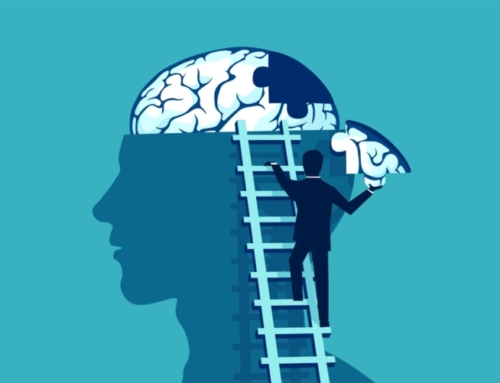As the world around us continues to evolve — socially, economically, and professionally — it’s necessary to reflect not just on what’s happening around us, but on how to respond. One of the most powerful tools in times of transition is asking yourself this question:
Based on how the world has changed and will continue to change, and how those changes are likely to affect me, what active steps should I now consider in response?
It’s a question that shifts you from passive observation to intentional, forward-looking action.
One well-established, simple yet comprehensive method for such a review is called a SWOT Analysis, which I – never satisfied – have expanded to include a fifth component, making it SWOT-C, which stands for Strengths, Weaknesses, Opportunities, Threats, and Constraints. Strengths and weaknesses refer to you or your business, Opportunities and Threats refer to the outside environment you or your business live in, and Constraints refers to both you and the world. I added Constraints to this method because I find that explicitly focusing on Constraints leads to greater focus on how they can be planned around, knocked down, or reframed to make them less “constraintful.” If you can, for example, eliminate a constraint, that can lead to new Opportunities and, of course, to new Threats too.
SWOT-C is a way of organizing your personal and business review to 1) minimize the risk of loss and failure and 2) optimize your chances of success (however you define it). SWOT was developed sometime in the 1960s although it’s unclear who authored it. Let’s take a closer look.
- Strengths: What personal and business characteristics define your strengths? Perhaps you already offer telehealth services, giving you flexibility and access to a broader patient base—even when in-person visits are limited or less practical.
- Weaknesses: What personal and business characteristics are your weaknesses? Perhaps you hate to develop and/or follow a financial plan and despite your healthy income, have little to no savings and assets.
- Opportunities: What aspects of the world offer you opportunities for personal or business growth? A good example is the ability to now treat or consult on patients with particular mental health or life issues from across the globe because of the availability of a telemedicine infrastructure.
- Threats: What aspects of the world are actual or potential threats to your well-being, including your income? For example, the growing use of artificial intelligence in medical diagnostics and documentation is reshaping clinical workflows. While it can enhance efficiency, it also raises concerns about job security, scope of practice, and the evolving role of the clinician in patient care.
- Constraints: What are your personal and business constraints that place limits on your ability or desire to grow your strengths and opportunities and mitigate your weaknesses and threats? For example, you may have a small child and do not wish to work more than 20 hours a week. But, by reviewing this constraint, perhaps you realize you placed this constraint on yourself because you did not wish to be away from home any more than 20 hours of work would allow. Now, however, you realize that telepsychiatry can allow you to devote more hours to seeing patients as you work from home. You now have additional small windows of time that are long enough to go into your home office to see patients – perhaps as your child is taking their daytime nap – but that is not long enough to commute to the clinic to see patients.
There are two more factors to consider that form the foundation and boundary around the SWOT-C Analysis results. These factors are your Goals and Values. It doesn’t matter what awesome opportunities open up in the world if they are inconsistent with your core life goals and/or antithetical to your core life values. The SWOT-C Analysis is meant to be neutral in terms of goals and values and is a way of evaluating one’s self and the world one lives in with a cold eye. But, of course, we are not only profit-maximizing and pleasure-seeking machines. It is your goals and values that will help you decide where to direct your ongoing efforts. The world offers many different paths forward through the spacetime cone of possibility. There are paths available to you to simultaneously do well and do good, to be passionate about your work, and to live up to your highest self.
SWOT-C may seem cheesy or too simple. But in my work with patients, business owners, and myself, I believe even simple analyses can be eye-opening. They literally can change your life. There is a big caveat, however: sitting down and going through a SWOT-C review will make you realize how little you know about the world’s Opportunities and Threats, about what you should do to mitigate your Weaknesses, and how to take advantage of your Strengths. Suddenly, it becomes clear that SWOT-C is not so simple after all.
This brings me to the next two factors that come into play as you move through a SWOT-C Analysis, for such an analysis is not a one-off activity but rather an ongoing process. The two additional factors are Due Diligence and Cybernetic Course Correction. Due Diligence refers to gathering sufficient information about relevant aspects of the world to know the nature of the world’s Opportunities and Threats. Cybernetic Course Correction refers to the continuous reanalysis and reconsideration of your path through the world’s affordance landscape. As you learn and try new things, you place yourself in a position to learn and try more new things. Cybernetic is a term from rocketry (now applied to business and personal analysis) that refers to the position-sensing and motion-adjusting systems that are continually updating as they guide a rocket to its goal. Personal development cybernetics can be captured by the term Action Learning: as you start towards a goal you may not have the knowledge or skills to achieve that goal. But as you act towards your goal, you continue to assess and learn, iteratively picking up the knowledge and skills to continue moving towards the goal. This E.L. Doctorow quote captures this reality: “You can see only as far as the headlights, but you can make the whole trip that way.”
Until next time,
Dr. Jack
LanguageBrief
“Action speaks louder than words but not nearly as often.” ― Mark Twain
“People pay for what they do, and still more for what they have allowed themselves to become. And they pay for it very simply; by the lives they lead.” ― James Baldwin
“Sometimes you never feel meaner than the moment you stop being mean. It’s like how turning on a light makes you realize how dark the room had gotten.” ― Rebecca Stead
“I have always thought the actions of men the best interpreters of their thoughts.” ― John Locke
“I shall act always so as to increase the total number of choices.” ― Heinz von Foerster







Leave A Comment